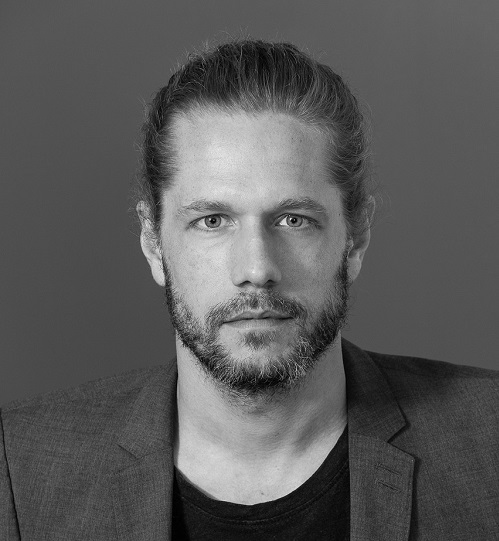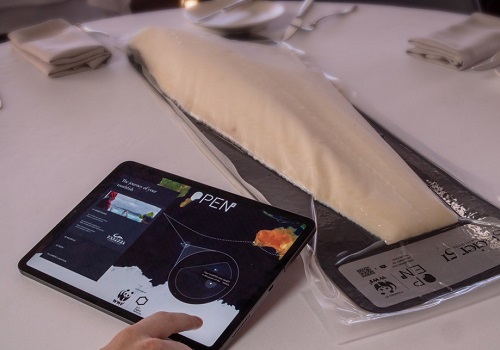OpenSC, an impact venture developed in partnership by the World Wide Fund for Nature Australia (WWF-Australia) and BCG Digital Ventures (BCGDV), the global corporate venture, investment, and incubation arm of Boston Consulting Group, announced that it raised $4 million in seed funding from strategic impact investors. The funds will be used to further the development of OpenSC’s digital platform, which leverages blockchain and other technologies for tracking food and products, as well as helping people and businesses avoid illegal, environmentally-damaging, or unethical products.
SEE Change sat down with OpenSC CEO, Markus Mutz, to better understand the venture’s mission, challenges, the importance of impact investors and partners, and how it’s fighting to eliminate modern-day slavery.
What inspired you to launch OpenSC? What is the mission, the challenges it was trying to tackle?
OpenSC came out of a collaboration between WWF (specifically its ‘Panda Labs’ innovation program) and BCG Digital Ventures. Our starting point was to ask the question: “Can technology help save the planet?”
We discovered huge potential in combining WWF’s 30 years of experience driving sustainability in commodity supply chains like seafood and timber, with BCG Digital Ventures’ track record in building successful new tech-based businesses.
We started a joint venture to validate and incubate the idea, and are now proud to have spun-off and capitalised OpenSC as an impact venture, which is on a mission to help producers, retailers, and consumers choose products that are good for the planet and good for workers. We’re doing this because we know that bad actors and hidden practices in the supply chains of many common products likely are responsible for the ongoing destruction of habitats and wildlife, along with human rights abuses and modern slavery.
Let’s talk about this next phase. How will the technology platform help driving sustainable and ethical supply chains?
OpenSC (stands for Open Supply Chains) is a digital platform that uses blockchain and other technologies to track food and other products. In simple terms, we help people and businesses to avoid illegal, environmentally-damaging or unethical products.
We do this in three key ways. First, we use data science and machine learning to verify sustainability or ethics claims about individual products. Second, we trace the movement of products along supply chains leveraging IoT (Internet of Things) systems to capture data, and use blockchain for secure storage.Third, we share stories and information with consumers in interesting and engaging ways, using new technologies and connectivity.
Tell us about modern slavery – how does it manifest today and why it’s so difficult to eliminate?
Modern slavery is less about people literally ‘owning’ other people – although that still exists – but more about people being exploited and completely controlled by someone else, without being able to leave. A person could be suffering modern slavery if they are forced to work – through coercion, or mental or physical threat — or if they are trapped and controlled by an ’employer’, through mental or physical abuse or the threat of abuse.
On any given day, there are estimated to be 40 million humans experiencing modern slavery. One of the reasons this situation continues to manifest is that modern slavery is too easily hidden within complex supply chains. As products are bought, sold, processed and transformed along the supply chain, it can be very challenging to know with any certainty whether modern slavery conditions have been experienced at any point.
Tell us about the importance of partners – and why you partnered specifically with Nestle and others?
Too often sustainability and human rights are considered an ‘add on’ or a ‘niche’. We want to enable change at scale. We also want to work with companies that are forward-looking, open-minded and willing to embrace change.
Nestle has publicly shared it’s ambition around supply chain transparency and started the journey with some exciting projects (including ours), whilst Austral fisheries is an MSC-certified and carbon neutral leading Australian fishing company, also part of the Mahura Nichiro group – one of the world’s largest seafood companies in the world.
How important is the VC funding to your mission moving forward? Why?
We believe that our new investors are better described as ‘impact investors’. They bring expertise in human rights and technology innovation to the venture, alongside OpenSC’s co-founding organisations: WWF’s conservation expertise and BCG Digital Ventures’ proven record in building disruptive businesses. Altogether a unique and powerful constellation!
Working Capital, supported by Humanity United, was established to invest in scalable innovations to meet the growing corporate demand for more transparent and ethical supply chains—addressing the urgent need to protect vulnerable workers and source responsibly. Christian Wenger, is the founder of digitalswitzerland and a key figure driving technology innovation and entrepreneurship in Switzerland.
What is your vision for the next 5, 10 years?
Our vision is of a world in which ethical and sustainable production and consumption become the norm, safeguarding a healthy, prosperous, and sustainable future for people and the planet. Here’s how – with our partners – we can make that happen over the next 5 to 10 years.
To start, new levels of openness and data will give companies and customers visibility into supply chains and confidence in proven production practices. Then, armed with trusted data, consumers will demand sustainable and ethical goods, and producers will better manage supply chains to mitigate waste, fraud, and other risks. So ultimately, sustainable and ethical producers are rewarded more and more by the market, while others are crowded out.
Markus Mutz is the CEO of OpenSC, having led the incubation and capitalisation of the company since late 2017. As a Director and founding team member of BCG Digital Ventures in Australia, he helped build successful disruptive businesses like Ovo, Boost and Qantas Assure. Prior to that he worked for the Boston Consulting Group, where he focused on improving retail supply chains, and for the World Food Program.


